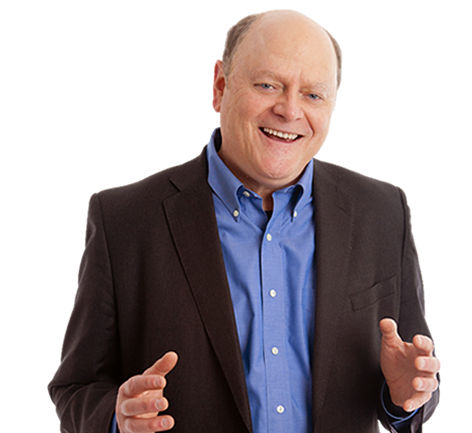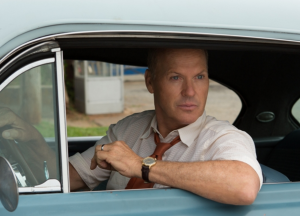The Founder, Lessons in Innovation
The Founder, starring Michael Keaton as McDonald’s founder Ray Kroc, is the best film about innovation since Moneyball in 2011. Between the two of them there is enough marvelously illustrated content to teach a masters course in innovation.
Unlike Moneyball, which had the surface covering of a baseball story, The Founder is actually about how innovation happens. In telling Ray Kroc’s story, we see it all: the entrepreneurial mindset, observational research, desire, and, how an idea is taken to the next level.
One does not have to be a student of innovation to love this movie. Innovation stories, in both the movie, and in real life are filled with emotion, brilliance, and human frailty. Innovation stories are inherently transformational because they are about change — and this is perfect for the two hour story arc of a movie. Invention/innovation films are not a new thing, Tucker: The Man and His Dream was an excellent film, and more recently, Joy is a somewhat flawed but still interesting invention movie, but back to The Founder.
The Founder is a “full cycle” movie, in the sense that it starts with the idea and ends with the successful implementation. There are scenes about about invention, development, prototyping, and completion. It also includes the dark side of innovation. The heartbreak, failures, disruption of relationships, the seemingly impossible odds — and the unethical behavior. Ultimately, it’s a story about an ambitious and flawed entrepreneur with a desire for more — and along the way there is so much to learn.
Use this movie with innovation teams, or students. Here’s a preview:
Questions to Discuss
To begin with, how did Ray Kroc take the idea of the McDonald brothers and make it his own? Ray didn’t invent fast food systems, the McDonald’s did. Ray Kroc perfected a good idea and was the person to fully implement and monetize it, in other words, innovation. That took a different skill set. Teachers can talk about how innovation is rarely done by a lone wolf inventor; it takes a team.
Veteran actor Michael Keaton is the perfect Ray Kroc. As he drives his 50’s era sedan down Route 66 you see a man who has an eye for the main chance. Traveling through middle America, selling, with the endless slew of hotel rooms, gas stations, and poor-service restaurants, he’s got his finger on the pulse of what’s going on in the food business (discuss the need for domain knowledge). He’s on the road trying to sell milk shake mixers and getting rejection after rejection. The repetitive scene of him walking back to his car with the heavy mixer and placing it with care inside his trunk — has you feeling his pain, his desire, frustration, and his quest for something better (discuss motivation). The director (John Lee Hancock) found a clever way to show us what’s going on inside his mind when we see Ray listening to records on a portable player in his hotel room. The record, which might actually be Dale Carnegie, is about persistence and success.
All this careful set up in the film of who Ray Kroc is puts you in the mind of an entrepreneur. It’s not easy to find the right thing. Ray had been down many paths in his life and it breaks your heart as his friends laugh at his latest “scheme.” Entrepreneurs are all faced with the toughest sell there is, the one that happens at home, and that part of the story is not ignored in The Founder. His relationship with his first wife just aches, she doesn’t want the risk, she would prefer a stable life without all the schemes, and a husband at home. Laura Dern’s Ethel Kroc tries to be supportive but it’s not enough. It’s not surprising when he asks for a divorce. Ray saw what a real team partnership could be when he met his future wife Joan (discuss obstacles and relationships).
When Kroc discovers the McDonald’s brothers and their restaurant, he knows immediately that they have something truly unique. Kroc’s background enabled him to see a larger potential. This is the perfect launch pad to talk about having dots to connect, that is, market knowledge. It’s also a starting point to discuss how people have different thinking and problem solving styles. The McDonald’s were strong in ideation and refinement of the main idea, the fast food system. Kroc was a bigger picture thinker, a visionary, and also a “get it done now” implementer. It was inevitable that they would clash, but when they did work together they created something amazing. It did take Ray’s evolving the franchising concept and figuring out how to maintain control to make McDonald’s what it is today. These clips are launch pads for concept development, and business model pivots (from franchise fees to real estate). Here’s that specific clip:
The sequence of events that describe the McDonald’s brothers story is a case study in American entrepreneurship. The poor family roots, the crazy jobs, the failed movie theater during the depression, the first hot dog stand, then the success, and failure of their drive-in. The re-tooling of their concept, the reliance on data, the insights, the persistence, and the prototyping. In 1950’s America the McDonald’s brothers created a rapid prototype of the layout of their restaurant, in chalk, on a tennis court. They were architect-ing for speed, and they revised and revised until they had a kitchen layout that was breakthrough for delivering high quality food quickly. It’s inspirational to watch.
For teachers, or innovation project leaders, the backstory is all done in a fast moving montage with a voice over — all done in about five minutes on screen. Teachers can talk about mindset, marketing, points-of-difference, coping with failure, and the value of measurement and data. The tennis court chalk scene might be the best example of real life prototyping I’ve ever seen. All this done 40 years before Design Thinking! See John Hancock’s commentary video here (created for/by the New York Times). Discuss prototyping, design thinking, inexpensive testing, idea refinement.
Ultimately Ray Kroc buys out the McDonald’s and crates and empire. He reneges on a handshake deal about royalties which is a discussion point on business ethics.
How about hosting an innovation film festival at your organization? Watch them together. Once a week. Then discuss. Here’s a list.
And please, make fresh popcorn!




One response to “The Founder, Innovation On Film”
[…] The Founder, Innovation On Film Gregg Fraley Blogg […]